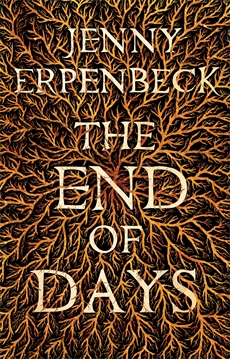
always the fear of giving too much of oneself or too little, Jewish sow, always the rungs separating human beings, the inferiorities, always someone pushing someone else downstairs, someone falling, knocking over the person below. Had not they, the Communists, made it their business to even out the gradient so that everyone could stand freely without falling, without pushing, shoving, being pushed or shoved, free – and without fear?
(which cleverly foreshadows the next death in the sequence, via falling downstairs) and had me thinking back to the pre-Communist era depicted in the novel, Zugzwang. Yet it did not engage me as much as I might have hoped.
This is the third novel I’ve read recently by an award-winning German-speaking writer. Although I enjoyed Daniel Kehlmann’s F, I couldn’t get to grips with Indigo by Clemens Setz, so it might be that I’m not the ideal reader for this kind of fiction. Thanks, nevertheless, to Portobello Books for my review copy of The End of Days, which was translated into English by Susan Bernofsky. If you prefer the novel of ideas to the novel of character, this might be one for you.
Somewhat tangential to this novel, albeit the subject of German translations, I came across the interesting word weltschmerz recently, literally “world pain” or the grief we feel at how the world keeps falling short of our expectations. It reminded me of Norah Colvin’s recent post introducing the word meliorism, the belief that the world can be improved by the actions of humans. Although weltschmerz might initially appear to be the polar opposite of meliorism, the article suggests a bridge between them: while the evidence suggests that our world is getting better, at least in respect of becoming less violent, “our moral norms are improving even faster, outpacing reality, so we’re constantly affronted by things we’d once have accepted”. Both are useful: weltschmerz enabling us to care enough about what’s wrong and meliorism driving us to try to do something about it.





















 RSS Feed
RSS Feed





















